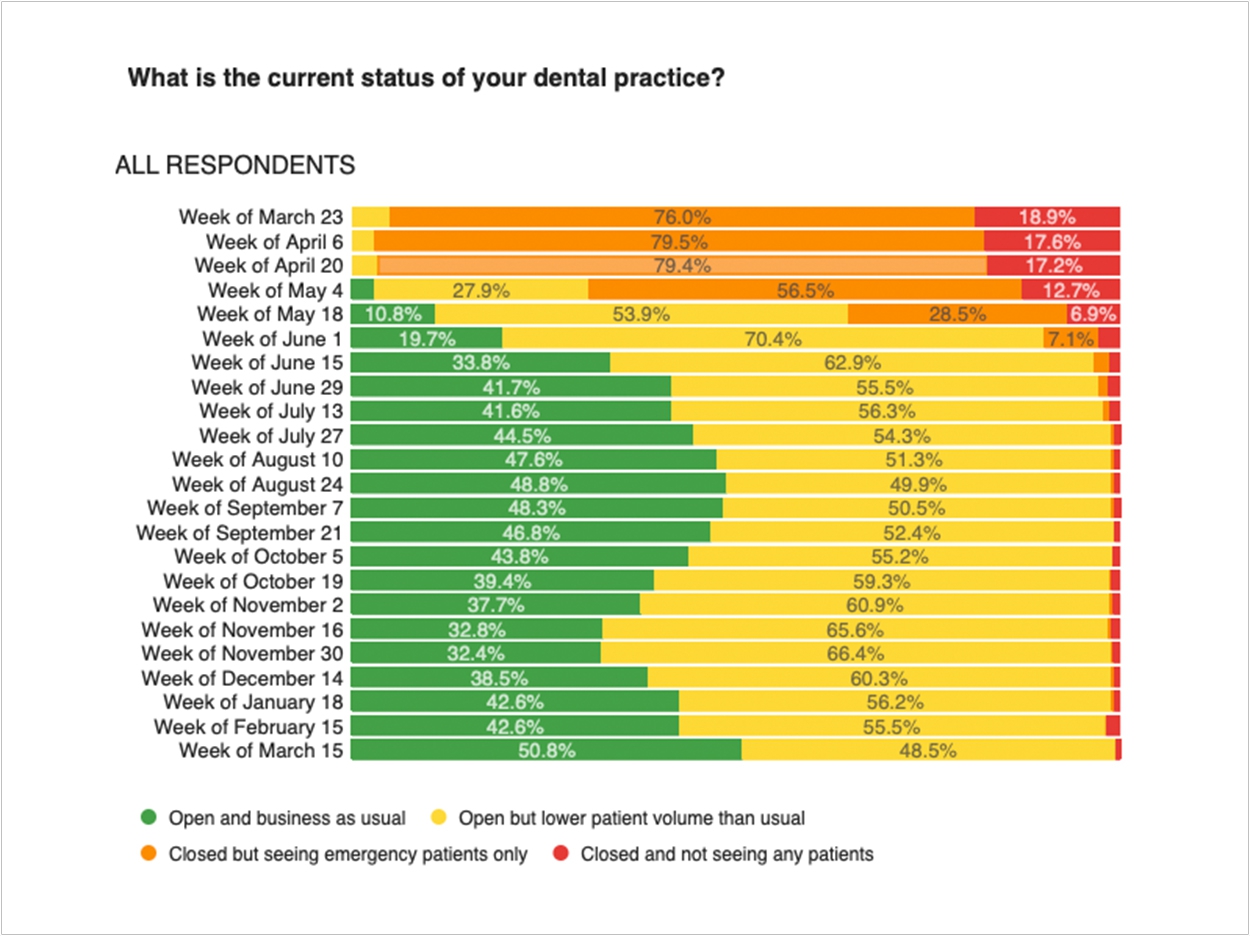
Dentistry’s recovery has hit a milestone, as 50.8% of practices reported they were open with business as usual in the ADA’s March 15 poll. That’s a significant increase over the 42.6% reporting business as usual in the February 15 and January 18 polls.
Total patient volumes also are improving, with 30.5% reporting more than 95% of pre-pandemic levels and 34.6% reporting between 86% and 95%. In the February 15 poll, only 22.3% reported pre-pandemic levels and 33.1% reported between 86% and 95%.
Collections are improving as well, with 29.4% seeing more than 95% of their pre-pandemic levels and 31.8% reporting between 86% and 95%. In the February 15 poll, only 22.1% reported pre-pandemic levels of collections, and 31.5% reported between 86% and 95%.
There’s good news for employees too, as 96.0% of practices are fully paying their staffs, which is an increase from February 15’s 93.9% total. Also, 83.0% of non-owner dentists were fully paid in the March 15 poll, compared to 76.7% in the February 15 poll.
Personal protective equipment sourcing remains challenging, however, as various percentages report zero-day supplies of N95 and KN95 masks, surgical masks, face shields, gowns, disinfecting supplies, and gloves.
And the recovery isn’t in full effect yet either, as dental practices enacted a variety of strategies in the previous month to maintain their financial stability:
- Downsizing the dental team: 6.9%
- Reducing dental team hours: 12.3%
- Reducing employee wages/benefits: 2.1%
- Disenrolling from dental benefits plans: 7.3%
- Changing dental materials supplier/lab: 15.5%
- Raising fees: 24.7%
- Borrowing money from a bank: 21.5%
- Selling their practice: 1.3%
- Joining a DSO or large group practice: 0.7%
- Retiring: 1.0%
- Other: 6.3%
Related Articles
76% of Dentists Call the Pandemic’s Effect on Oral Health Significant
93% of Americans Plan to Visit the Dentist in 2021
Dentists Face Fallout from a Year of Disrupted Care












